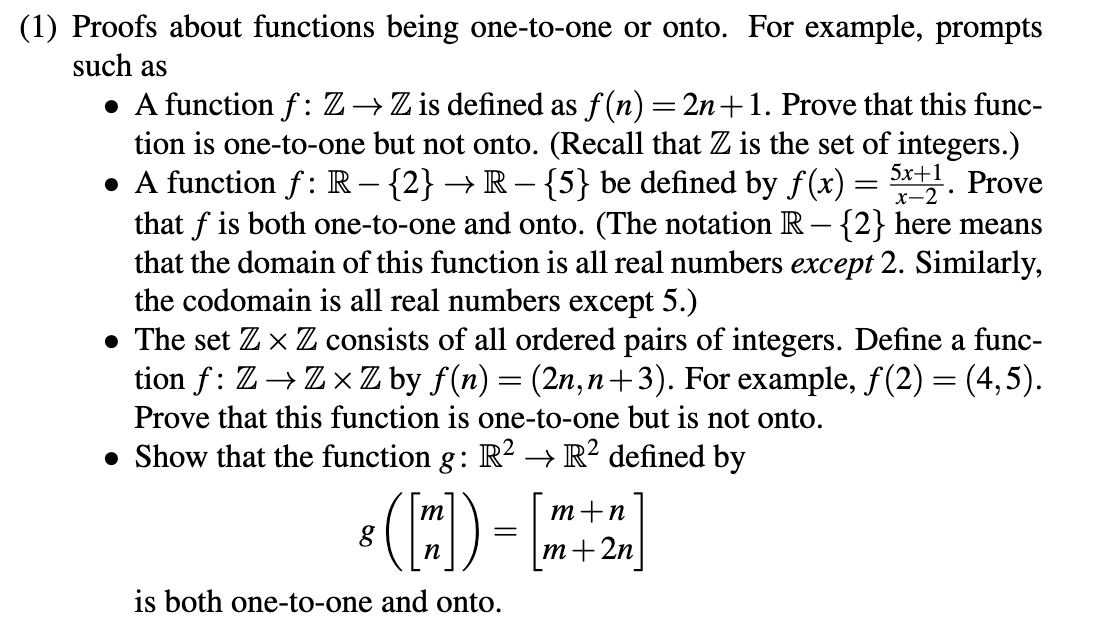Sometimes, language can feel like a winding path with unexpected turns, a place where even familiar words can hide little puzzles. When you sit down for a focused chat, like a one on one Breanna and Dmack session, these tiny linguistic questions often come up, making you pause and think about how we really use words. It's almost like a shared exploration, trying to figure out the subtle ways our speech works.
This kind of close talk, a one on one Breanna and Dmack exchange, offers a chance to untangle those confusing bits. It’s a space where you can bring up those nagging thoughts about common phrases or word choices that just don't quite click. You know, the ones that make you wonder if you're saying something the best way possible, or if there's a hidden rule you're missing. It's a good thing, really, to question the everyday tools we use to communicate.
Today, we're taking a peek into just such a conversation, a one on one Breanna and Dmack discussion where they tackle some of those very linguistic head-scratchers. They're looking at phrases we use all the time, trying to get a better handle on what makes one choice sound more fitting than another. It’s a pretty common experience, trying to make sense of the spoken and written word, and they're doing it together, which is nice.
- Jonathan Hemington Ice Wall
- Brandon Adams On Merlin Santana Death
- Dennis Frazier Dog Video
- When Your Teacher Assigns 5 20 Page Readings Website
- Diddy Carl Wilson
Table of Contents
- Breanna and Dmack's Word Workout
- Which One - What's the Difference?
- Making Sense of Relative Pronouns
- Where Do You Draw the Line with "One of the"?
- The Puzzle of "That That That That"
- Is "One Man's Trash" Always Another's Treasure?
- Understanding "Jack of All Trades"
- What's the Best Way to Tackle These Language Quirks in a One on One Breanna and Dmack Session?
Breanna and Dmack's Word Workout
Imagine a friendly chat, a true one on one Breanna and Dmack meeting, focused on the nooks and crannies of how we speak. They're not just idly chatting; they're really digging into the details, trying to sort out what makes certain ways of saying things feel more right than others. It's like a mental exercise, working through examples and talking about the subtle shades of meaning. This kind of interaction, you know, it can really help clear things up.
They might start with something seemingly simple, a question that has probably crossed many people's minds at some point. It’s about those tiny words that carry a lot of weight, the ones that can change how a sentence lands. They are trying to get to the heart of what makes language flow well, and how to avoid those moments where you just feel a bit off about your word choice. In some respects, it’s about finding a sense of confidence in how you put thoughts into words.
This whole idea of a "word workout" during a one on one Breanna and Dmack discussion is pretty interesting. It shows that language isn't just something we use without thinking; it's something we can actively work on and improve. They are, in a way, like detectives, looking for clues in sentences to figure out the best approach. It’s a shared quest for greater clarity, which is a good thing for anyone who uses words, which is basically everyone.
- Novia De Axel Martinez
- Tylil Sister Age
- Australian Breakdance Olympics Performance
- Israel Portal In Sky
- Swiss Cheese Twin
Which One - What's the Difference?
Breanna started things off during their one on one Breanna and Dmack discussion with a common point of confusion. "So, Dmack," she began, "I was wondering about 'which' and 'which one.' When you're asking about a choice, like, 'Which book do you want?' does it make sense to keep using 'one' after that? Or do 'which' and 'which one' actually mean the same thing? I mean, I see people use both."
Dmack thought for a moment, a little bit pondering the question. "That's a good thought, Breanna. I mean, sometimes I feel like they're interchangeable, but then I stop and wonder if there's a subtle difference. Like, if you say 'Which one?' could that suggest that out of the choices, only a single option is possible, or allowed, you know? It feels a bit more limiting, perhaps." He was really trying to articulate the feeling he had about it, which is often harder than it sounds.
Breanna nodded, her expression showing she understood. "Exactly! And then 'Which' by itself, could that show many options from the group of choices could be picked in different ways? It's a bit confusing, honestly. I just don't get the why behind which one sounds right in which situation. Typically, I pick the one that's not right, or I pick them when I shouldn't. It's like a guessing game sometimes, isn't it?" This particular point, she felt, was a constant source of mild frustration for her during her daily writing.
Dmack considered her point. "You know, a while back, I saw a teaching video where the person teaching mentioned something about this. They were saying that 'one' in 'which one' can act like a stand-in word, and it wouldn't mean a number. So, it's not like you're saying 'which number one.' It's more about pointing to a single item from a group. It's a subtle distinction, but it's there, apparently." He was trying to recall the exact phrasing from the video, which can be tough.
Breanna mused, "So, if I have two tasks, and I say, 'I have two tasks, one of them is done,' versus 'I have two tasks, one of which is done,' are both okay? Or is one somehow better, you know, more proper? I mean, they both convey the same idea, don't they? This is the kind of thing that makes you scratch your head during a one on one Breanna and Dmack chat." She was really trying to pin down the best way to say things.
Making Sense of Relative Pronouns
Their one on one Breanna and Dmack session then moved onto another common area of linguistic puzzlement: those words that connect parts of sentences, like 'in which' or 'of which.' These can really trip people up, and they often lead to sentences that feel a bit clunky or unclear. It’s a point where many people, in fact, struggle to get things just right.
Breanna voiced her confusion. "How does one properly use 'in which,' 'of which,' 'at which,' 'to which,' and so on? I'm not sure which one to use when putting sentences together with these. It feels like there are so many rules, and I just get them mixed up. For instance, when do you pick 'in which' over just 'where'? It's a bit of a maze." She was looking for a straightforward way to understand these connecting words.
Dmack sympathized. "I totally get that. It's like trying to figure out a puzzle sometimes. I mean, you often see these used in more formal writing, but even then, it’s easy to pick the wrong one. It's almost as if each one has its own little job, and if you swap them, the sentence just doesn't quite work. We could probably spend a whole one on one Breanna and Dmack meeting just on this topic, honestly." He found these challenging too.
They both agreed that understanding these small but mighty words was key to clearer communication. It’s about knowing when to use a more formal connector versus a simpler one, and how that choice affects the flow of your writing. This sort of detailed discussion, where you really pick apart sentences, is a good use of a one on one Breanna and Dmack session, helping them both gain a better feel for the language.
Where Do You Draw the Line with "One of the"?
The conversation during their one on one Breanna and Dmack meeting then turned to another common phrase: "one of the." This seemingly simple group of words can actually hide some tricky points about how we talk about groups and individuals. It’s a phrase that pops up all the time, so getting it right feels pretty important, you know?
Breanna brought it up. "I want to know what the rules are for using the words 'one of the.' Is it used correctly in this example: 'He is one of the soldiers who fight for their country.'? I mean, it sounds okay to me, but then I second-guess myself. It’s like, who is doing the fighting? Is it 'he' or 'the soldiers'? This is where I start to get a bit tangled up." She was looking for some clear guidance on this particular structure.
Dmack considered the sentence. "That's a classic one, actually. The way I usually think about it is that 'who' is referring back to 'the soldiers.' So, it's the soldiers who fight, and he is just one person from that group. It’s a bit like saying, 'He is part of the group of soldiers, and that group fights for their country.' It can be a little confusing because of where the 'who' is placed, but that’s generally how it works. This is why a one on one Breanna and Dmack chat is so helpful, to break these down."
Breanna nodded slowly. "I just don't get the why behind which one is right in which situation. Typically, I pick the one that's not right, or I pick them when I shouldn't. It’s like there’s a secret handshake to these rules, and I’m always missing it. Where do you decide the limit on these kinds of phrases? It feels like a fine line sometimes." She was trying to figure out the underlying logic.
Dmack offered, "Well, the general idea is that if you're talking about a group that does something, and then you say someone is 'one of' that group, the action usually belongs to the group. It’s about keeping the focus on the collective. It’s a pretty common way of expressing things, but it definitely needs a moment of thought. It's a good thing we're having this one on one Breanna and Dmack session to go over these details."
The Puzzle of "That That That That"
During their one on one Breanna and Dmack discussion, they stumbled upon a truly mind-bending example of how words can stack up, creating a sentence that, while technically correct, looks absolutely bizarre. It’s the kind of thing that makes you pause and reread, wondering if your eyes are



Detail Author:
- Name : Hunter Langosh
- Username : deangelo.littel
- Email : nicolette78@yahoo.com
- Birthdate : 1983-07-18
- Address : 4703 David Forge Suite 883 Port Barthaven, CO 85115
- Phone : (940) 706-3128
- Company : Hauck Ltd
- Job : Stock Broker
- Bio : Amet est inventore laborum voluptatum eveniet qui nam dolor. Qui modi voluptas nisi architecto sit eum. Quia sed adipisci ut. Sequi facilis doloribus voluptatem minima quasi.
Socials
twitter:
- url : https://twitter.com/greenfelder1987
- username : greenfelder1987
- bio : Ducimus quia aperiam similique cum consequatur aperiam. Sed similique cum explicabo possimus corrupti. Sed tenetur magni ab.
- followers : 2542
- following : 1071
facebook:
- url : https://facebook.com/ngreenfelder
- username : ngreenfelder
- bio : Sequi atque odio ut in. Quae quasi rem voluptatum exercitationem omnis tenetur.
- followers : 5646
- following : 2213